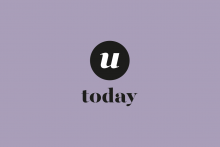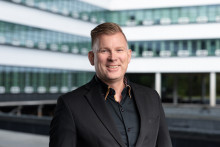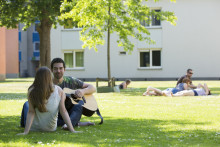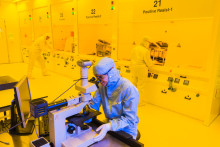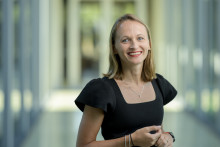Eric Jan de Widt, director of Holding Technopolis Twente and founder of UTI, revealed his plans to a select few early October during a monthly meeting between scientists and entrepreneurs in the Faculty Club. De Widt sees a commercial organization, working as matchmaker between science and industry, as necessary to attain the ambitious goals of the knowledge park. `UTI will work as a catalyst agent, as an interpreter between businesses and the university.' He sees too much UT knowledge that is left unused. De Widt feels that, as an intermediary between university and businesses, United Twente Innovations can better match the `explicit and latent needs' of both industry and science. The UT considers UTI an excellent initiative, and plans to support it as soon as there is a well-founded business plan. That business plan is currently being written. The executive board already promised a quarter of a million euros in start-up money. Chairman of the Executive Board Flierman: `We will certainly require intermittent evaluations and we must not hesitate to cancel the project if goals are not being met.'
Carry Abbenhuesz, representative of the Province of Overijssel for Economics and Innovation, considers UTI a `great way to generate activity.' `If you embraced the concept of a knowledge park and you support the goal of creating ten thousand new jobs, then you should select the vehicle that will get you there. You should not leave that to chance.'
De Widt, who will continue as director of the new company, expects to make a profit within five years. Until then, the commercial UT offspring will require an investment of ten to fifteen million euros from its partners. Abbenhuesz emphasizes that financial matters will not be discussed until there is a proper business plan. `However, the province has reserved 1.25 million euros for projects that contribute to the goals of the knowledge park.'
UTI will become a commercial organization, administratively separate of the UT. That was a sine qua non for De Widt, who does not want to `have to ask permission for every step.'
In the first five years, De Widt and UTI plan to start at 45 businesses to create a large number of jobs. In the second period of five years UTI will work on ninety businesses and in the third term one hundred and forty.
`It is a major challenge,' claims Abbenhuesz. `We have been selected as a technological hotspot. The university has enormous potential, but it is up to us to realize that potential. This is one way to do it.'
Trans. Jeroen Latour


